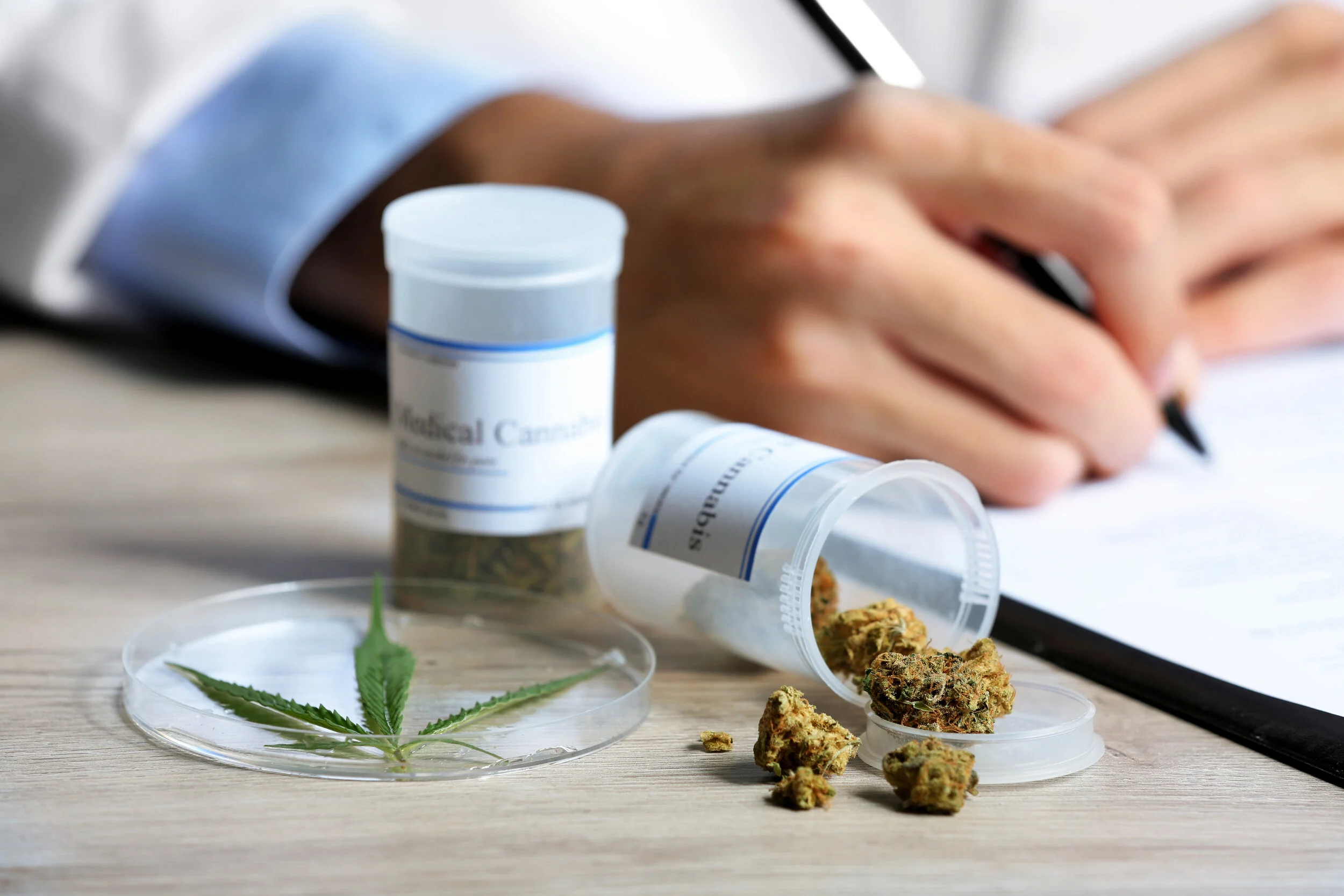The Cost of Cold Feet: How Mercer County, WV lost 50+ cannabis jobs
Having lived in Mercer County, West Virginia my entire life, I was always told our state’s biggest problems were the economy and the opioid epidemic.
The devastation caused by the opioid crisis - and it is a crisis - is undeniable. Just in my graduating class of 2014, the lives lost are already accumulating. So many people we know fall victim to prescription pills and the distrust caused by the desperation of addiction.
The economy of our state has its own issues that compound with the social and health issues we face. The economic history of West Virginia - in a word - is a history of exploitation.
Selling our soul to the company store and rarely gaining equity from our hard work. Now the debate rages on with few good answers: how do we diversify, keep the good jobs we do have, and pull people out of poverty?
In 2017, I heard that the state government had legalized cannabis (or marijuana) for medical use. I thought to myself, ‘wow, this one action could help to mitigate all of our most pressing issues at once.’
Medical marijuana is far from a silver bullet, but it would give an alternative to opioids in people with chronic pain and more. And it would create a ton of good jobs out of thin air.
The motto of West Virginia University when I attended was #GoFirst. I was so proud of our state for finally living up to that saying, doing something that challenges deep dogma to make the state a better place.
After 2017, the state turned ‘Go First’ into a hollow hashtag rather than a principle to live by. Three years later and there still is not medical cannabis on dispensary shelves somewhat due to legitimate concerns and somewhat to do either obstructionism or governmental failure.
Since 2017, a lot has happened - obviously. I volunteered for medical cannabis advocacy groups and met so many moms with suffering children (epilepsy, Crohn's disease, cancer and more) that are forced to become criminals to give their kids relief. In that time, my own dad became tremendously sick and would qualify for medical cannabis in WV.
In 2017, I was preparing for grad school and eyeing a program in Lawrence, Kansas. I always heard that young people fleeing the state was another depressing factor in our economy, but what opportunities are there for a young person here?
The passing of the Medical Cannabis Act gave me the idea and opportunity to stay in the state and try to make it better. It gave me the idea to not wait around for a good job, but to become an entrepreneur and create those jobs from scratch.
Fast forward a year or two, I’ve teamed up with some awesome medical cannabis professionals to bring those jobs and economic development to my hometown. By law, each county’s health board must approve a medical cannabis business and the counties have the ability to pass ordinances to prevent it if they so choose.
Our team is meeting with the Mercer County Commissioners (Gene Buckner, Bill Archer and Greg Puckett) in the courthouse, hoping to get their blessing.
They were all at least a little skeptical but surprisingly willing to listen. I explained that it’s only for medical use and must be recommended by a doctor. When I said that they were surprisingly receptive, I was only two-thirds correct.
Mr. Puckett made it clear that he thinks cannabis is bad and corrosive no matter what. We gave him academic studies that show opioid deaths decreasing after medical legalization, he would not look at them. He even claimed cannabis is more addictive than opiates.
Surely we misunderstood? We asked him if he thought cannabis is more addictive than heroin. He doubled down and said that was the case. Even the other commissioners and economic development folks in attendance looked at him funny after that. We would have one more private meeting in which Puckett did not attend.
Fast forward to early 2020, the County Commission has medical cannabis on agenda for a public meeting. I’m in attendance. I’m happy to see my Dad’s radiation oncologist, Dr. Baisden, and I wave from across the room. The first issue on the agenda is a gun rights resolution that takes up, conservatively, 95% of the meeting’s time.
Finally, it’s Dr. Baisden’s turn to speak on his efforts to bring a medical cannabis business to the county to make sure suffering people like his patients can get relief. He is cut off abruptly by Puckett who begins a speech regarding the medical effects of cannabis and its lack of benefits.
On Mr. Puckett’s LinkedIn, his first line of job experience is “Actor,” and his highest education is a Bachelor of Arts in Communication. He is now lecturing Dr. Joseph Baisden, MD on how to treat cancer patients. The only other time Dr. Baisden is allowed to speak is when Mr. Buckner asks him how many jobs a single dispensary creates. Dr. Baisden says something like eight approximately. Buckner scoffs and dismisses the issue entirely as not worth it.
I leave that meeting stunned. I didn’t know our community was in such a good place that we’re in the position to turn down high paying jobs. I didn’t know starting at shooting guard for the Drug Free All-stars (a silly basketball game that for some reason we got out of school for as kids) qualifies you to lecture cancer doctors.
Over the next few months, Mercer County Health Board, pressured by certain community leaders, became the only county in the state to deny permission for medical cannabis businesses. The City of Bluefield has been tirelessly advocating for a business in their jurisdiction. City Manager Dane Rideout said, “We can’t delay that and get paralysis through analysis and drag this thing out and miss that boat.”
But we did miss the boat. Luckily, no one applied for a grow/processor in Mercer County. I say luckily because any applicant would have lost given that the ban was in place when those permits were awarded.
Our former Delegate, Jon Shott, came down to the health board and explained that the legislature already put all necessary precautions in place. He asked them, “Have we really accomplished anything positive if we don’t allow them access to the product under supervision?” Because I know the political situation of my county, my company was forced to abandon our plans to locate in Bluefield for the eastern Panhandle instead.
We knew not to apply here because I knew one single community leader would do anything to stop us. One self-acclaimed "pro-business" and "pro-revenue" leader has caused a tremendous cost to my community.
The cost for the county: we lost a new business, tax revenue, and 50+ jobs. The cost for me personally: I may have to move and discontinue being my Dad's caregiver (he has terminal brain cancer).
This is what happens when West Virginia drags our feet, we lose jobs, revenue, and we light capital on fire. Our neighboring county to the north, Raleigh, won two grows and two processing permits and should win multiple dispensaries.
Mercer County and rural America will continue to suffer until we have bold leaders who seize the opportunities in front of them.
The thing is, I respect our community leaders for all the work they do and their commitment to doing what they believe is right. But when the best argument is that we don’t know enough, that’s not good enough. And If you think that cannabis is not a medicine, maybe you’ve never been sick. Because when you’re really sick, you’ll try anything.
We have the third lowest median household income, the 11th worst unemployment rate, and even the seventh worst health outcomes. I’m tired of finishing last. Our whole state is sick, and we need solutions now.
When you have a brain injury, the recovery is slow and gradual if it happens at all. The recovery for a hurt state will be long and there will be more hurt to come.
Medical cannabis is not a silver bullet. It absolutely will not solve all our problems. But we’ve got to start the healing process right now, not tomorrow, one step at a time. We don’t have to condone recreational drug use; it’s still illegal. But medical cannabis is legal, and we do have an obligation to help suffering people when we can.



